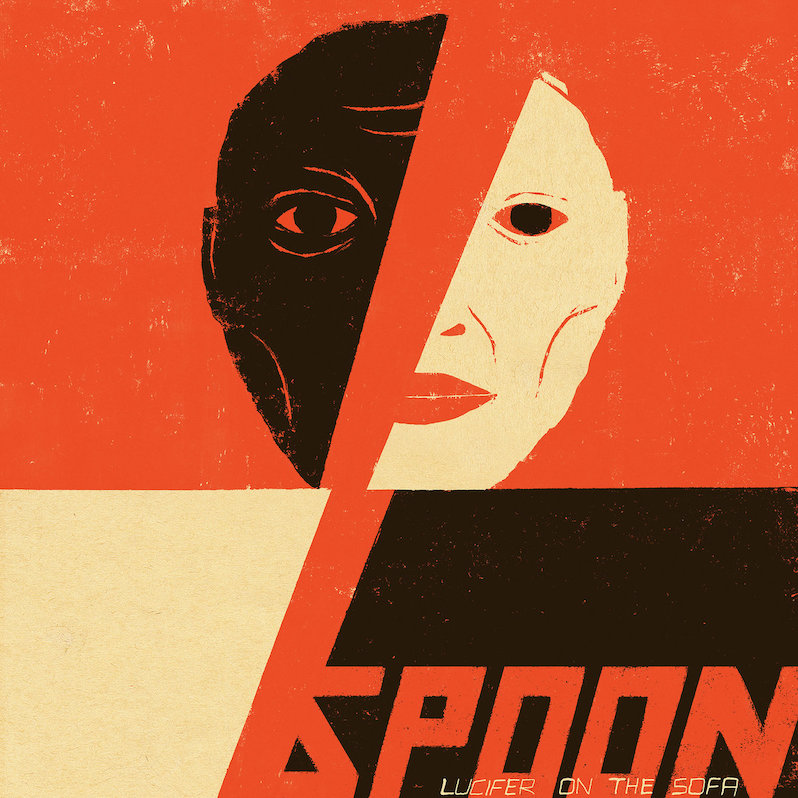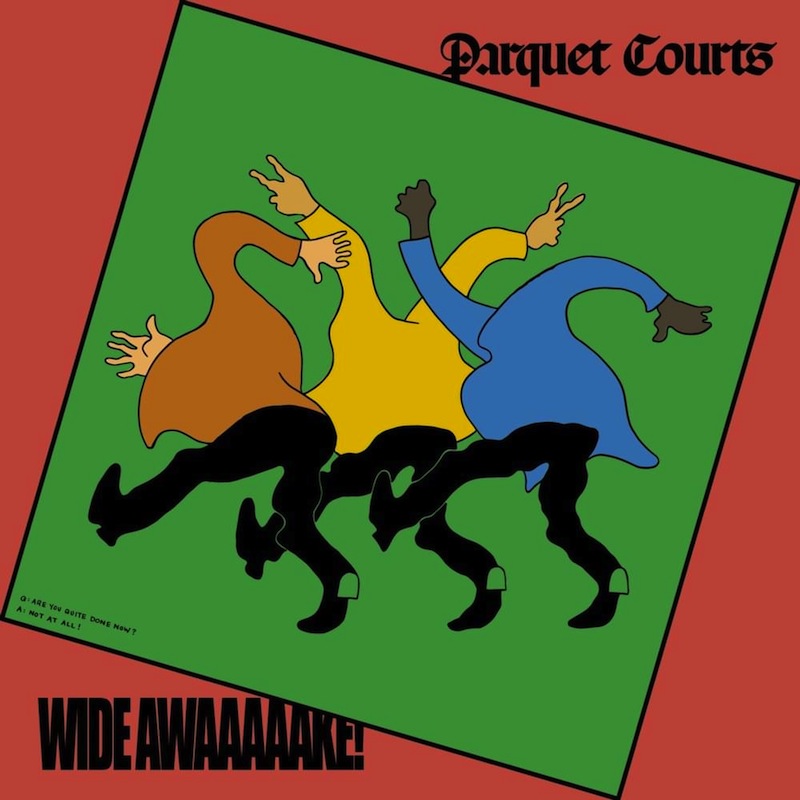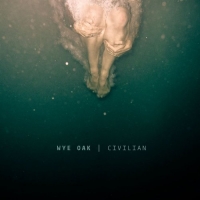Spoon : Lucifer on the Sofa

Spoon have sounded like they’ve been knocked down for a while now. The seminal Austin band’s albums released through the ‘10s were—even prior to the pandemic—riddled with small anxieties (They Want My Soul), hot thoughts (Hot Thoughts) and headier electronic sounds. The group managed to strike a number of nervy powerful chords during this phase change, with frontman/vocalist Britt Daniel group unfailingly at the helm. Yet these were mostly exceptions; Spoon have been on some other kind of trip for the better part of decade, with music that felt smaller and pricklier, seemingly leaving their heaviest sounds behind.
Now, after five years, Spoon are up and at ‘em again with Lucifer on the Sofa—the band’s most brazen rock ’n’ roll record, and one of the strongest albums in a career 29 years deep. Beyond the back-to-basics vibe of the music, Lucifer is also a return to form for Spoon in a more practical sense: the band’s members moved back to their hometown of Austin, Texas, convening for sessions at Public Hi-Fi, drummer Jim Eno’s longtime studio space. Recording in familiar environs imbued Lucifer on the Sofa’s ten tracks with a palpable confidence—the band barrel forward with their musical impulses here, and the album’s ten tracks feel gleeful and wild. (Illustrator Edel Rodriguez’s cover painting, etched in fiery orange shades and centered around a smirking bifurcated Satan head, perfectly captures the album’s devilish energy.) This is the sound of Spoon with fangs: done with the ten years of languishing, and back out on the prowl.
Lucifer on the Sofa opens with “Held,” a wild Smog cover that sets the stage for the audacious moves to follow. Starting an album with a cover tune is already a left-field impulse, and Spoon go all-out to make their version of “Held” as mischievous, and deeply weird, as possible: sleigh bell fills; smashed fists on the piano; whirling dervish guitars; a studio talkback mic, deployed artfully as its own instrument. Daniel’s fire-and-brimstone exclamations, feral and ragged against the song’s bluesy sway, elicited from me a genuine gut laugh on first listen: “For the first time in my life/I let myself be held/yeah/like a big old… baby!”
Daniel admits to listening to a lot of fellow Texans ZZ Top while writing the album, Lucifer’s unofficial Lone Star lodestar. The band’s wily energy is felt across the record in ways both large and small, perhaps most notably on the raucous lead single “The Hardest Cut.” Slinky and sidewinding, it’s the street-smart city cousin of ZZ Top’s “La Grange.” Spoon revel in “The Hardest Cut”’s cheap thrills and piercing sounds: it’s instrumental hook, if you can call it that, is a gang of live-wire guitars, pushing their lowest detuned-to-D strings completely to the brink. (Elsewhere, in a seemingly more subtle ode, Lucifer’s gapless transition between the tracks “The Devil & Mister Jones” and “Wild” feels like an easter-egg nod to ZZ Top’s “Waiting for the Bus”/ “Jesus Just Left Chicago”—medleyed without pause, and to brilliantly bad-ass effect, on 1973’s Tres Hombres.)
But there’s a lot more going on with Lucifer on the Sofa than just proto-blues, hot licks and quick tricks. Daniel best summed up his collective songwriting efforts with a blunt one-liner ahead of release day: “It’s the sound of classic rock as written by a guy who never did get Eric Clapton.” To this end, Lucifer’s other influences feel surprisingly wide-ranging—and far more overt than your typical Spoon record. “My Babe” follows the map of timeless rock sing-alongs like Free’s “Alright Now” and The Beatles’ “Hey Jude,” crescendoing to a big-hearted one-liner chorus on loop: “Sing my heart out, beat my chest for / my babe.” “On the Radio,” a power pop strut with swagger to spare, channels Elvis Costello and Spoon’s own Ga Ga Ga Ga Ga—a classic in its own right by now, released in 2007—in equal measure. And even the sound of boomy, Cocteau Twins-y dream pop blazes through “Wild”: unfurling in widescreen, and setting the album’s center alight.
Lucifer on the Sofa’s most dynamic shift occurs at its close, with the title track arriving in the final slot. The band abandon the record’s established sounds, settling into their own kind of quiet and existential fantasia. Daniel’s lyrics chart a solo pandemic-era midnight walk through the heart of downtown Austin, with field-notes-level specificity: “Now you’re cruising up Lavaca/Against the traffic lights/Gonna walk all evening, yeah/There’s no one out tonight/Now you’re thinking about Dale Watson/Thinking about turquoise/All along West Avenue/While those black birds make their noise.” It’s pure and mesmeric, moving in the present-tense, with a heartening groove that feels like it could roll on forever. It’s also deliberately at odds with the rest of the record and its big, wild fervor. But Spoon manage to tame Lucifer on the Sofa’s energy into a deservedly cathartic conclusion here—a proper “Happy Trails” sendoff, a time to let the embers cool. It’s a thrilling final move in an album that’s chock full of them, leaving the horizon wide open for Spoon and their sounds yet to come.
Label: Matador
Year: 2022
Buy this album at Turntable Lab
Similar Albums:
Ben Easton is a writer and musician based in Brooklyn, NY. He's a member/producer of the rock quartet The Academy Blues Project, with whom he has made six records, and plays Live Piano Karaoke in-residence at Sid Gold's Request Room, New York City's flagship modern piano bar. Beyond Treble, Easton is a staff writer at Cover Me Songs, the web publication devoted to cover music of all genres.




